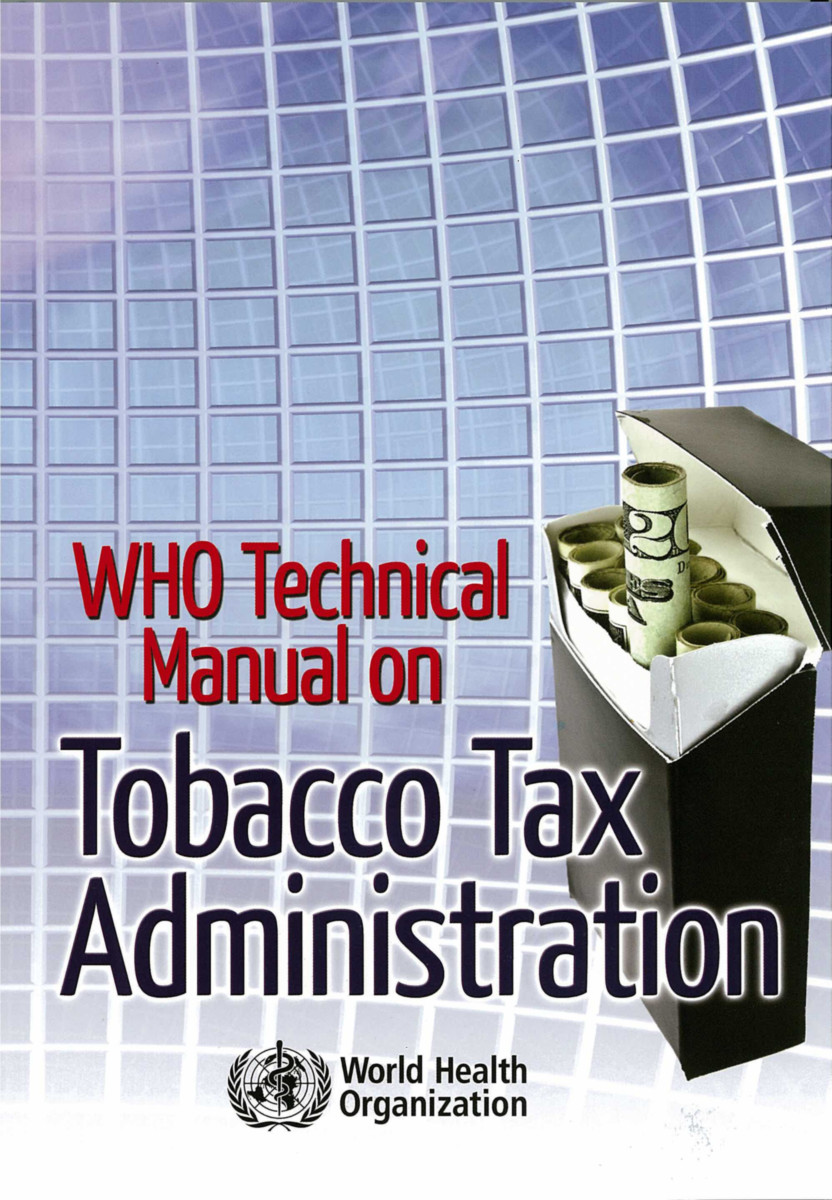WHO Technical Manual on Tobacco Tax Administration
- Publisher
World Health Organization - Published
6th December 2010 - ISBN 9789241563994
- Language English
- Pages 134 pp.
- Size 6.25" x 9.75"
Tobacco use is the single largest cause of preventable death globally, killing more than five million people each year. Tobacco use also creates considerable economic costs, from greater spending on health care to treat the diseases it brings on in users and those exposed to tobacco smoke to the lost productivity resulting from the premature deaths it causes.
Of all the many interventions for reducing tobacco use, a significant increase in tobacco product taxes and prices has been demonstrated to be the single most effective and cost-effective intervention, particularly among the poor and the young. At the same time, because of the inelasticity of demand for tobacco products in most countries and the low share of tax in price in many, significant increases in tobacco taxes generate significant increases in the revenues generated by these taxes.
This technical manual aims to help governments achieve both objectives by identifying a set of "best practices" for tobacco taxation. It documents governments' existing approaches to tobacco taxation, discusses barriers to using tobacco taxes to achieve health and revenue objectives, and provides case studies of effective tobacco tax administration. This manual is intended to be useful to tax administrators at the Ministry of Finance level by making them aware of the practices used and challenges faced by other countries. It will also be useful to officials in a country's Ministry of Health or similar organizations by providing them with a more thorough understanding of key issues in tax structure and administration.
World Health Organization
World Health Organization is a Specialized Agency of the United Nations, charged to act as the world's directing and coordinating authority on questions of human health. It is responsible for providing leadership on global health matters, shaping the health research agenda, setting norms and standards, articulating evidence-based policy options, providing technical support to countries, and monitoring and assessing health trends.


